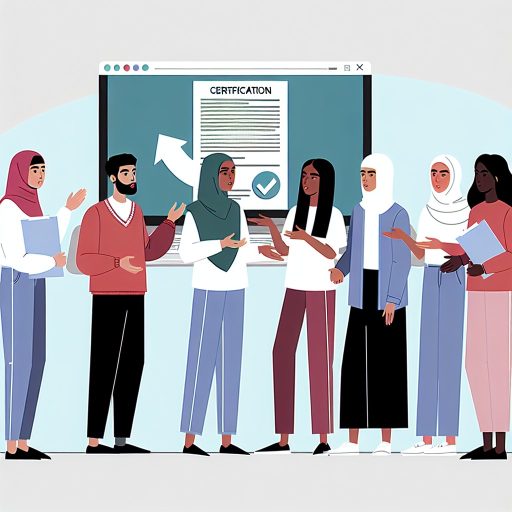Introduction
Mental health technicians play a crucial role in the healthcare industry.
They provide support to individuals with mental health conditions.
These professionals have various responsibilities.
They monitor patient behavior.
They administer medications.
They assist with daily living activities.
Research the job requirements and qualifications
Explore the educational background needed for the role.
Identify any certifications or licenses required for mental health technicians.
When preparing for a mental health technician job, it is crucial to understand the specific requirements for the role.
By conducting thorough research, you can ensure that you meet all necessary criteria to excel in this field.
Educational Background
Most employers look for candidates with a minimum of a bachelor’s degree in psychology, social work, counseling, or a related field.
Some positions may require a master’s degree for advanced roles or specialized areas.
It is essential to review job postings and research different educational paths to find the most suitable degree for your career goals.
Certifications and Licenses
Many mental health technician positions require certification or licensure to practice.
Some common certifications include Certified Mental Health Technician (CMHT) or Certified Behavioral Health Technician (CBHT).
These certifications typically involve passing an exam and completing a certain number of training hours.
Additionally, some states require licensure to work as a mental health technician.
Licensure may involve meeting specific education and experience requirements.
Before applying for a mental health technician job, make sure to meet the necessary educational and certification prerequisites.
Staying informed about any changes in licensing requirements in your state is essential to maintain compliance and advance your career.
Transform Your Career Today
Unlock a personalized career strategy that drives real results. Get tailored advice and a roadmap designed just for you.
Start NowThorough research into job requirements and qualifications will help you prepare effectively for a mental health technician job.
It will also increase your chances of securing a position in this rewarding field.
Gain Relevant Experience
- Seek internships or volunteer opportunities in mental health facilities.
- Consider working in related fields such as counseling or social work to gain experience.
Gaining relevant experience is crucial when preparing for a job as a mental health technician.
Employers often look for candidates who have practical experience working in mental health settings.
Here are some tips on how to gain the necessary experience.
Seek Internships or Volunteer Opportunities in Mental Health Facilities
One way to gain valuable experience in the field of mental health is to seek out internships or volunteer opportunities in mental health facilities.
These opportunities can provide hands-on experience working with clients, observing professionals in action, and learning about different treatment modalities.
Internships allow you to apply theoretical knowledge to real-world situations and develop practical skills essential for a career in mental health.
Volunteering provides a way to give back to the community while gaining valuable experience that can help you stand out to potential employers.
Consider Working in Related Fields Such as Counseling or Social Work to Gain Experience
If you are unable to secure an internship or volunteer opportunity in a mental health facility, consider working in related fields such as counseling or social work.
These fields often involve working closely with individuals who may be experiencing mental health challenges and can provide valuable insight into the complexities of mental health care.
By working in counseling or social work, you can develop essential skills such as active listening, empathy, and problem-solving that transfer to a role as a mental health technician.
You will also gain a deeper understanding of the challenges faced by individuals with mental health issues and how to support them effectively.
Gaining relevant experience through internships, volunteer opportunities, or work in related fields is essential for preparing for a job as a mental health technician.
These experiences demonstrate your commitment to the field and provide valuable skills and knowledge to help you excel in your role.
See Related Content: How Life Skills Instruction Promotes Social Inclusion
When preparing for a Mental Health Technician job, it is essential to develop the necessary skills.
These skills will help you excel in this role.
Here are some key skills that you should focus on.
Cultivate strong communication skills
- Effective communication is crucial in providing support and care to patients.
- Practice active listening to understand the needs and concerns of individuals.
- Learn how to communicate in a clear, empathetic, and non-judgmental manner.
- Be able to convey complex information in a way that is easy to understand.
Enhance problem-solving abilities
- Mental health issues can be complex and multifaceted, requiring creative solutions.
- Develop critical thinking skills to analyze situations and come up with effective interventions.
- Be adaptable and able to think on your feet when faced with unexpected challenges.
- Work on developing resilience to handle difficult situations and setbacks.
By focusing on cultivating strong communication skills and enhancing your problem-solving abilities, you will be better equipped to succeed in a Mental Health Technician job.
Transform Your Career Today
Unlock a personalized career strategy that drives real results. Get tailored advice and a roadmap designed just for you.
Start NowThese skills will help you provide the best possible care to patients.
They will also contribute to your personal and professional growth.
Learn More: Case Management Certifications and Training Programs
Familiarizing Yourself with Common Mental Health Disorders
In order to prepare for a mental health technician job, you must learn about common mental health disorders.
Take the time to study various disorders such as depression, anxiety, bipolar disorder, schizophrenia, PTSD, and ADHD.
Familiarize yourself with emotional, cognitive, and behavioral symptoms typical of each disorder.
Learn about the prevalence of each disorder and their impact on individuals’ daily life and well-being.
Understand the underlying causes and risk factors associated with these disorders.
Treatment Options for Mental Health Conditions
Research different treatment modalities that are commonly used for mental health disorders.
These include therapy, medication, and holistic approaches.
Become familiar with evidence-based practices and treatment guidelines for various conditions.
Recognize the importance of interdisciplinary collaboration to provide comprehensive care.
Understand how a mental health technician supports clients through their treatment journey.
Learn to monitor client progress effectively.
By gaining knowledge of disorders and treatment, you will provide better care and support.
This knowledge helps you communicate well with healthcare professionals.
It also contributes to a positive work environment.
- Take the time to study and understand various mental health disorders such as depression, anxiety, bipolar disorder, schizophrenia, PTSD, and ADHD.
- Familiarize yourself with the typical symptoms associated with each disorder, including emotional, cognitive, and behavioral symptoms.
- Learn about the prevalence of each disorder and the impact they can have on an individual’s daily life and well-being.
- Understand the underlying causes and risk factors associated with different mental health disorders.
- Research the different treatment modalities commonly used for treating mental health disorders, including therapy, medication, and holistic approaches.
- Familiarize yourself with evidence-based practices and treatment guidelines for various mental health conditions.
- Learn about the importance of interdisciplinary collaboration in providing comprehensive care for individuals with mental health disorders.
- Understand the role of a mental health technician in supporting clients through their treatment journey and monitoring their progress.
Find Out More: Best Practices for Documenting Domestic Violence Cases
When preparing for a mental health technician job, it is essential to familiarize yourself with therapeutic techniques and interventions.
These tools will help you provide effective support to individuals struggling with mental health issues.
Transform Your Career Today
Unlock a personalized career strategy that drives real results. Get tailored advice and a roadmap designed just for you.
Start NowExplore Different Therapeutic Approaches
- Research cognitive-behavioral therapy (CBT), which focuses on changing negative thought patterns and behaviors.
- Learn about mindfulness meditation, a practice that helps individuals stay present and aware of their thoughts and feelings.
- Understand the principles of dialectical behavior therapy (DBT), which emphasizes skills training to manage emotions and improve relationships.
- Explore solution-focused therapy, which helps clients set and achieve specific goals to enhance their well-being.
- Consider other modalities such as art therapy, music therapy, and play therapy that can be beneficial in a mental health setting.
Implement Therapeutic Techniques in Practice
- Develop a deep understanding of how to apply CBT techniques, such as cognitive restructuring and exposure therapy, to help patients challenge and change their negative thought patterns.
- Practice mindfulness meditation exercises yourself to cultivate a sense of presence and empathy when working with individuals in distress.
- Learn DBT skills such as emotion regulation and distress tolerance to help clients develop healthier coping mechanisms and improve their emotional well-being.
- Utilize solution-focused therapy strategies, such as scaling questions and miracle questions, to guide clients in identifying their strengths and setting achievable goals.
- Incorporate creative modalities like art therapy into your practice to help clients express themselves and process emotions in a non-verbal way.
By learning about various therapeutic approaches and interventions, you can enhance your skills as a mental health technician.
You can provide comprehensive support to individuals in need.
Remember that each person is unique, so it is important to tailor your approach to meet their specific needs and preferences.
Gain More Insights: Promoting Housing Stability in Communities

Practice self-care and stress management
Working as a mental health technician can be emotionally draining.
The job requires you to face many challenges daily.
Therefore, it is crucial to prioritize self-care regularly.
This helps you maintain your well-being and effectiveness in your role.
Importance of self-care in demanding roles like mental health technician
- Understand that taking care of yourself is not selfish but necessary to provide the best care for your patients.
- Recognize the signs of burnout and compassion fatigue.
- Signs may include feeling overwhelmed, irritable, or emotionally exhausted.
- Acknowledge that self-care is a critical component of your job, not a luxury.
Healthy coping mechanisms for stress management and burnout prevention
- Practice mindfulness and meditation to stay present and reduce anxiety.
- Engage in regular physical activity to boost your mood and reduce stress.
- Establish boundaries between work and personal life to prevent emotional fatigue.
- Seek support from colleagues, supervisors, or a therapist to process your emotions and experiences.
- Prioritize rest and relaxation to recharge and prevent burnout.
- Engage in hobbies or activities that bring you joy and relaxation outside of work.
- Practice deep breathing or progressive muscle relaxation techniques for stress relief in the moment.
By prioritizing self-care and stress management, you enhance your job performance and well-being.
Remember that taking care of yourself is essential to effectively support others on their mental health journey.
Stay updated on mental health trends and advancements.
- Attend workshops, conferences, and training sessions to stay informed about the latest developments in mental health care.
- Network with other mental health professionals to exchange knowledge and insights.
Keeping up-to-date on mental health trends and advancements is essential for mental health technicians.
By staying informed about the latest developments, you can provide better care for your patients.
You can also stay ahead in your field.
Importance of Staying Updated on Mental Health Trends
Ensures best practices.
Attending workshops and conferences allows you to learn about new treatments and approaches proven effective.
By incorporating these best practices, you can improve patient outcomes and overall quality of care.
Enhances professional growth.
Continuing education is key to advancing your career as a mental health technician.
By staying informed about the latest trends and advancements, you enhance your skills and knowledge.
Transform Your Career Today
Unlock a personalized career strategy that drives real results. Get tailored advice and a roadmap designed just for you.
Start NowThis makes you a more valuable asset in the field.
Ways to Stay Updated on Mental Health Trends and Advancements
- Attend workshops and conferences focused on mental health topics.
- Participate in training sessions to learn new techniques.
- Network with peers to exchange knowledge and insights.
- Read professional journals and publications that highlight research and advancements.
These methods provide practical and up-to-date knowledge you can apply in your work.
Benefits of Staying Updated on Mental Health Trends
Improved patient care.
Incorporating the latest trends lets you provide more effective, personalized care.
This leads to better outcomes and higher patient satisfaction.
Career advancement.
Being knowledgeable about mental health trends opens new career opportunities.
Employers value professionals who stay informed, enhancing your competitiveness.
Professional recognition.
Keeping current enhances your reputation and credibility among clients and colleagues.
This increases trust and respect in your abilities.
Investing in your professional development allows you to improve patient care.
You also advance your career and enhance your professional reputation.
Prepare for interviews and job applications
- Create a compelling resume highlighting your relevant experience and skills.
- Practice answering common interview questions related to mental health technician job roles.
When preparing for a mental health technician job, it is essential to focus on both the interview process and job application requirements.
A strong resume that showcases your qualifications and skills is crucial to catch the attention of potential employers.
Additionally, practicing responses to common interview questions can help you feel more confident and prepared for the interview.
Create a compelling resume
Your resume is often the first impression a potential employer has of you.
Therefore, it is crucial to make it stand out.
When applying for a mental health technician job, focus on highlighting your relevant experience, education, and skills.
Include any relevant certifications or training programs you have completed.
Transform Your Career Today
Unlock a personalized career strategy that drives real results. Get tailored advice and a roadmap designed just for you.
Start NowConsider adding a summary or objective statement at the top of your resume to give employers a quick overview of your qualifications.
Practice answering common interview questions
Interviews can be nerve-wracking, but practicing common interview questions related to mental health technician job roles can help you feel more prepared and confident.
- Can you describe your experience working with individuals with mental health issues?
- How do you handle stressful situations in a clinical setting?
- What techniques do you use to build rapport and trust with patients?
- How do you prioritize and manage your workload in a fast-paced environment?
- Can you give an example of a challenging patient interaction and how you resolved it?
- How do you stay up-to-date on the latest developments in mental health care?
By preparing and practicing your responses to these questions, you can demonstrate your knowledge, skills, and experience to potential employers effectively.
Preparing for interviews and job applications when pursuing a mental health technician job is essential.
Creating a strong resume that highlights your qualifications and practicing common interview questions can increase your chances of landing the job.
Good luck with your job search!
Key Steps to Prepare for a Mental Health Technician Role
Start by obtaining relevant education and training in psychology or a related field.
Next, gain practical experience through internships or volunteer work.
Develop strong communication and interpersonal skills to succeed in this role.
Make sure to understand and adhere to ethical guidelines and confidentiality requirements.
- Obtain relevant education and training in psychology or a related field.
- Gain practical experience through internships or volunteer work.
- Develop strong communication and interpersonal skills.
- Understand and adhere to ethical guidelines and confidentiality requirements.
Essential Qualities for Success in Mental Health Care
Dedication is essential to providing quality care to individuals in need.
Empathy allows you to connect with clients on a deeper level and provide support.
Continuous learning helps you stay updated on best practices and new treatments.
By embodying these qualities, you can make a positive impact in the lives of others.
- Dedication is essential to providing quality care to individuals in need.
- Empathy allows you to connect with clients on a deeper level and provide support.
- Continuous learning helps you stay updated on best practices and new treatments.
- By embodying these qualities, you can make a positive impact in the lives of others.




